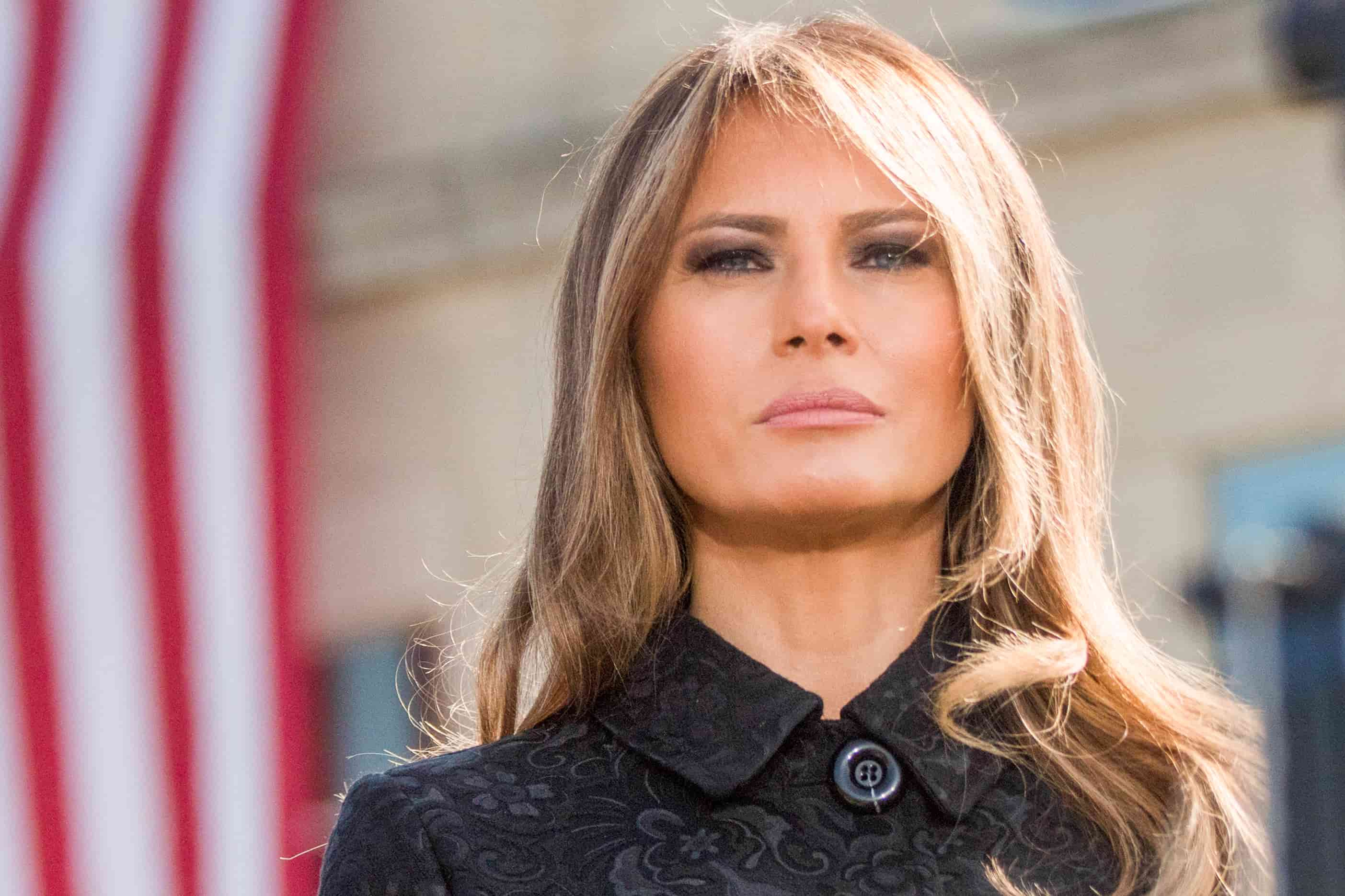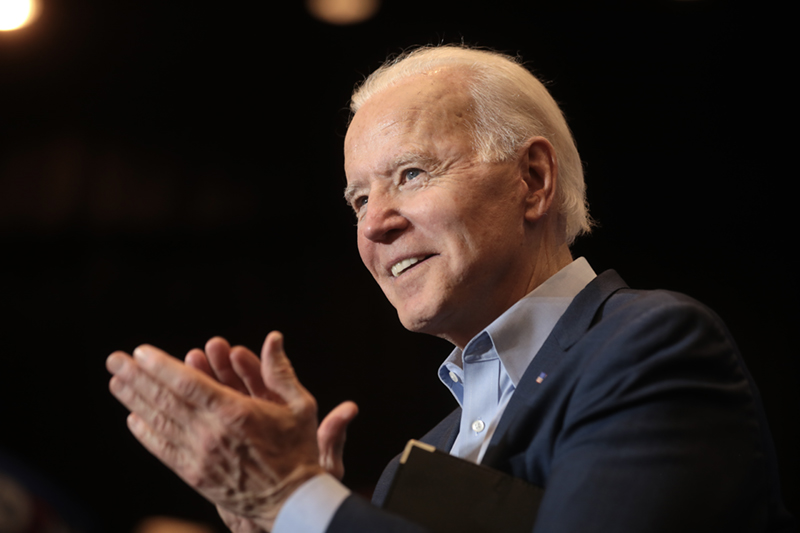The Straight White Broadcasting Company
Donald Trump could launch his own media empire if he loses the election -- and that's bad news for the LGBT community.
By Rhuaridh Marr on November 2, 2016 @rhuaridh

Donald Trump trades on his unpredictability. At campaign events, on cable news, with each tweet, and every time he opens his mouth, no one is sure exactly what the Republican nominee for president is going to say next. It’s a quality that thousands of Americans have flocked to, believing Trump to be honest, a proponent of “real talk,” dishing the dirt on a corrupt political system and a biased mainstream media. With every “bad hombres,” “nasty woman” and “grab them by the pussy,” Trump ensures that no one — perhaps not even him — can determine his next move.
Should Trump lose next week’s election, and accept that result without inciting his followers to start a civil war, there are more than a few signs as to what his next venture could be: Trump TV. Yes, a Trump branded and approved media empire, showcasing the content and coverage Trump and his supporters believe they’re not getting from mainstream media outlets.
Rumors have existed for weeks that Trump might try to create his own media empire, but it was only recently that his campaign made overt moves in that direction. The nascent stages of Trump TV were born on his Facebook page. Seizing on the platform’s livestreaming element, members of Trump’s staff provided coverage of the final presidential debate, offering commentary, analysis, and Trump-friendly spin — and drumming up around 150,000 donations to his campaign in the process, according to the New York Times.
That single broadcast eventually transformed into Trump Tower Live, a daily show broadcast from Trump’s Manhattan headquarters, aimed at “bypassing the left-wing media,” according to Cliff Sims, a co-host and proponent of the tool as a method for Trump’s message to reach voters. Borrowing liberally from cable news, Trump TV features news tickers, analysis, guests — former New York mayor and Trump supporter Rudy Giuliani has appeared — and a very deliberate slant towards the conservative, alt-right principles and love for conspiracy theories that have underlined Trump’s presidential bid.
“The Facebook live-stream…is going after a group of people that are potentially the core constituency base in this election,” says Cathy Renna, managing partner at Target Cue and a longtime media activist. “The ultra-right, the folks who are very disenfranchised, and to them even Fox News is too liberal. I don’t know how big an audience that is at the end of the day, [but] that seems to be what he’s been going for.”
Trump has both embraced and appealed to conservative and alt-right voters. Nowhere is that better reflected than in his campaign, which is stocked with individuals from across the right-wing political spectrum — many with well-documented anti-LGBT biases. His campaign CEO, for instance, is Stephen Bannon, the former chairman of Breitbart News, a conservative blog known for its anti-LGBT stances and often extreme rhetoric. Bannon himself has a history of offensive statements, including calling progressive women “a bunch of dykes” and claiming Target wanted to force children “into a bathroom with a guy with a beard in a dress” after the store confirmed it supported the rights of transgender customers.
If Bannon were to join Trump in launching a branded network, it would be disastrous not only to the LGBT community, but also a number of other minority and disenfranchised groups.
“Breitbart is not just limited to anti-immigrant sentiment, and perpetuating and preying on racial anxieties around black people,” says Angelo Carusone, Executive Vice President of Media Matters. “They’re also deeply anti-LGBT, and in part it can become very hostile. With respect to the trans community, Breitbart is a very strong influential force when it comes to perpetuating the bathroom myth…. They’re outright hostile and aggressive to the transgender community.
“They embrace this idea of ethnonationalism, and the tenets of this are that you have to have this very traditionalist worldview, which is it needs to be white, men need to be men, women need to be women. There’s no place for LGBT equality in an atmosphere like that and that is the worldview that they push.”
If Bannon weren’t enough, Trump has also cozied up to Roger Ailes, the disgraced former Chairman and CEO of Fox News. An advisor to Trump’s campaign, Ailes ruled Fox News with an iron fist — The Guardian compared his level of control over the cable news network’s agenda to “Stalinist Russia or the Church of Scientology.” He helped shape their right-wing, pro-Republican message, including a longtime stance against LGBT issues. Should Ailes, who remains an adviser at Fox News but no longer holds a position of power, influence a potential Trump TV network, LGBT equality will take a backseat.
“I do not see this is as a platform where there’s going to be any kind of fair discussion of the issues,” says Renna. “In fact, I would fear that they would probably start to rely on [Milo Yiannopoulos and] all the Gays for Trump folks. Are those the folks that are going to represent the LGBT community and our issues?”
Yiannopoulos, a Breitbart contributor, is an openly gay darling of the alt-right community. Often described as a “troll,” he delights in the extreme, using inflammatory and often homophobic or transphobic language, or any number of offensive terms that others in the far-right/alt-right community find acceptable. His rhetoric, which includes calling transgender people “deeply mentally damaged,” led to his eventual permanent banning from Twitter. If Yiannopoulos and his supporters are the only LGBT people to interact with a Trump network, Renna fails to see a positive outcome.
“Those would be, to me, the only part of the LGBT community that would go near this thing,” she says. “I remember arguments about the value of and whether or not we should go on Fox News to debate. That seems like child’s play next to going up against someone from Breitbart or somebody with those kind of views. I definitely don’t think it’s going to be a space where LGBT issues are going to be given that much attention at all, and when they are, I don’t expect them to be treated fairly at all.”
If there’s any good news, it’s that Trump Tower Live hasn’t exactly been the runaway hit that perhaps its creators expected. Live viewership for the first night was 60,000. The following night, it plummeted to 23,000. Intended to broadcast at 6:30 p.m. nightly, the second episode was 45 minutes late, a trend continuing into its third outing. The Hollywood Reporter called the broadcasts “lamer than the lamest of ‘lamestream media,'” and said they boasted “production values that make Wayne’s World seem state-of-the-art.” The Guardian wrote that a “backdrop of boxes, loose papers and telephones gives it all the flavor of a dire PBS telethon.” “Prime-time news, this was not,” the Times said.
If the Trump’s campaigns first steps into live broadcasting are anything to go by, a Trump network is a long way from being a reality. And Trump himself has been careful to avoid fueling any speculation, telling a radio host in Ohio “I have no interest in Trump TV.”
“I hear it all over the place, and you know, I have a tremendous fan base,” he said in October. “But I just don’t have any interest in that. I have one interest, and that’s on Nov. 8.”
A Trump network could also be unappealing to Trump as it removes the one thing he seemingly craves above all else: attention. Particularly when it’s free.
“Trump’s power has always been the ability to generate earned media,” says Carusone. “The reason he got so much attention from the news media during this campaign…was because he understands how to serve them snippets of content that you can commercialize. If he were to become a media mogul, as opposed to just a participant in the media, the posture changes automatically, because when you’re a competitor, you’re not going to keep giving Trump free airtime. Even if he’s doing something controversial.”
And Trump’s propensity for extreme comments and generating controversy might scupper any chances for a network long before it has a chance to get off the ground.
“I think there are very, very, very few companies that would advertise on any medium that was associated with Donald Trump,” says Renna. “Once people saw the toxicity, once people saw the unfairness, and saw the way issues were being treated and the way ‘news’ was being delivered, you’re not going to have mainstream advertisers who are going to want to touch this with a ten-foot pole.”
If Trump doesn’t succeed to win the presidency on Tuesday, the idea of Trump TV is undoubtedly appealing. “It’s going to be a platform for him to continue to complain about how the system was rigged, the election was stolen,” Renna says. But there’s a cautionary tale to be learned from another right-wing darling who tried to break away from Fox News and establish his own, more extreme (and notoriously anti-LGBT) brand: Glenn Beck.
“When he left Fox News and started his own enterprise, he could not attract national advertisers,” Carusone says. Beck had to resort to a subscription model to fund his new media empire, but eventually supplemented it with “direct response advertising.” “You’re selling a product, and that’s why Glenn Beck is always hawking gold or Sean Hannity is talking about some scammy data credit protection thingy, or [Infowars’] Alex Jones is telling you to buy…this juice box that he now sells, which takes away the chemicals that President Obama put in the water to make you gay.”
For Trump, who has successfully sold his political brand to millions of Americans and prides himself on his ability to make deals, hawking products on a self-branded network might not seem too far-fetched after all.
Melania Trump to Host Log Cabin Republicans at Mar-a-Lago
The fundraiser will launch the Trump organization's "Road to Victory" program, which seeks to target swing-state voters.
By John Riley on April 10, 2024 @JRileyMW
Former First Lady Melania Trump will host a fundraiser for the gay conservative political group Log Cabin Republicans. It will be her first major political event of the year.
The fundraiser is set for April 20 at Mar-a-Lago, the resort where the Trumps reside. It will launch the Trump organization's "Road to Victory" program, which seeks to target swing-state voters.
Melania Trump has maintained a longstanding relationship with the Log Cabin Republicans, which endorsed her husband's 2020 bid and whose leaders have been among the former president's most stalwart defenders.
In Presidential Politics, Maybe Age is Just a Number
Based on the stellar track record of his administration, President Joe Biden obviously knows what he's doing.
By Will O'Bryan on April 1, 2024
On my last day of junior high, my stepfather, my mother and I packed up the cars and drove south from Northern Virginia to Pasco County, Florida. The cultural adjustments were significant in both number and magnitude. For example, when we moved into Embassy Hills, I was 14 and easily the youngest person on our flat Florida block of single-story stucco homes. I believe my mother, at 52, was the youngest adult.
Prior to Pasco, my experience with very old adults had been limited mostly to senior relatives at family gatherings. My stepfather's retirement, however, put me squarely in their world. Early bird dinners, senior discounts, and mall walkers became fixtures in my new life.
Support Metro Weekly’s Journalism
These are challenging times for news organizations. And yet it’s crucial we stay active and provide vital resources and information to both our local readers and the world. So won’t you please take a moment and consider supporting Metro Weekly with a membership? For as little as $5 a month, you can help ensure Metro Weekly magazine and MetroWeekly.com remain free, viable resources as we provide the best, most diverse, culturally-resonant LGBTQ coverage in both the D.C. region and around the world. Memberships come with exclusive perks and discounts, your own personal digital delivery of each week’s magazine (and an archive), access to our Member's Lounge when it launches this fall, and exclusive members-only items like Metro Weekly Membership Mugs and Tote Bags! Check out all our membership levels here and please join us today!
The Magazine
-
Most Popular
 D.C. Courts Pop-Up Businesses Ahead of WorldPride
D.C. Courts Pop-Up Businesses Ahead of WorldPride  Texas Governor Wants to Ban Trans People from Being Teachers
Texas Governor Wants to Ban Trans People from Being Teachers  Cher to be Inducted in the Rock & Roll Hall of Fame
Cher to be Inducted in the Rock & Roll Hall of Fame  For Don Mancini, Chucky is So Much More Than a Killer Toy
For Don Mancini, Chucky is So Much More Than a Killer Toy  California Mayor Recalled After Coming Out as Transgender
California Mayor Recalled After Coming Out as Transgender  The Powerful Story Behind David Archuleta's ‘Hell Together’
The Powerful Story Behind David Archuleta's ‘Hell Together’  Lawsuit Against New York AG Letitia James Dismissed
Lawsuit Against New York AG Letitia James Dismissed  Ralph Fiennes and Indira Varma Soar in STC's 'Macbeth' (Review)
Ralph Fiennes and Indira Varma Soar in STC's 'Macbeth' (Review)  Gay Furries Hack Right-Wing Network Real America's Voice
Gay Furries Hack Right-Wing Network Real America's Voice  Vera Drew is Not Joking Around with 'The People's Joker'
Vera Drew is Not Joking Around with 'The People's Joker'
 D.C. Courts Pop-Up Businesses Ahead of WorldPride
D.C. Courts Pop-Up Businesses Ahead of WorldPride  Cher to be Inducted in the Rock & Roll Hall of Fame
Cher to be Inducted in the Rock & Roll Hall of Fame  Texas Governor Wants to Ban Trans People from Being Teachers
Texas Governor Wants to Ban Trans People from Being Teachers  For Don Mancini, Chucky is So Much More Than a Killer Toy
For Don Mancini, Chucky is So Much More Than a Killer Toy  LGBTQ Teen Sues School Over Suspension For Rap Lyrics
LGBTQ Teen Sues School Over Suspension For Rap Lyrics  California Mayor Recalled After Coming Out as Transgender
California Mayor Recalled After Coming Out as Transgender  Lawsuit Against New York AG Letitia James Dismissed
Lawsuit Against New York AG Letitia James Dismissed  GLOW's Secret Garden Is An "Escape...With A Chill Vibe"
GLOW's Secret Garden Is An "Escape...With A Chill Vibe"  Ralph Fiennes and Indira Varma Soar in STC's 'Macbeth' (Review)
Ralph Fiennes and Indira Varma Soar in STC's 'Macbeth' (Review)  Win Tickets to "Webster's Bitch" at The Keegan Theatre
Win Tickets to "Webster's Bitch" at The Keegan Theatre
Scene
Metro Weekly
Washington's LGBTQ Magazine
P.O. Box 11559
Washington, DC 20008 (202) 638-6830
About Us pageFollow Us:
· Facebook
· Twitter
· Flipboard
· YouTube
· Instagram
· RSS News | RSS SceneArchives
- "We use cookies and other data collection technologies to provide the best experience for our customers. You may request that your data not be shared with third parties here: "Do Not Sell My Data
Copyright ©2024 Jansi LLC.










